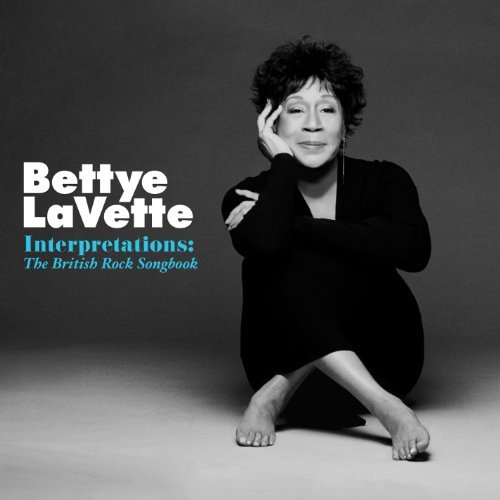
Bettye LaVette
Interpretations: The British Rock Songbook
Release Date: May 25, 2010
Genre(s): R&B, Soul
Record label: Anti-
Music Critic Score
How the Music Critic Score works
Buy Interpretations: The British Rock Songbook from Amazon
Album Review: Interpretations: The British Rock Songbook by Bettye LaVette
Great, Based on 8 Critics
Based on rating A-
Bettye LaVette has exquisite taste in songs and the gravelly delivery to wring every bit of meaning from their lyrics. The combination is superlative on Interpretations: The British Rock Songbook, whether her readings of classics by the Who, the Stones, and others are stripped-down and earthy or string-laden and grand. Sometimes torchy and always gut-wrenching, her knowing rasp pushes the album onto terra firma between the blues and power pop.
Based on rating 4.0/5
No one could ever say that Bettye LaVette doesn’t know precisely what her strengths are. The veteran soul singer, among the finest interpretive vocalists in modern music, has titled her latest collection Interpretations: The British Rock Songbook. It isn’t just her immediately identifiable, raspy alto that makes LaVette such a treasure; it’s that she truly takes possession of a song, using her intuitive, soulful sense of phrasing to find new facets to even the most well-worn material.
Based on rating 8/10
At first glance, Bettye LaVette's 2010 album Interpretations: The British Rock Songbook, would appear to be just another collection of covers. But “interpretations” is the key word here, because LaVette, a Detroit soul veteran and a contemporary of more famous peers like Aretha Franklin and Smokey Robinson, is no run-of-the-mill singer, and she takes these classic British Invasion tracks and gives them new dimension, making them in every sense and nuance her own. That’s not an easy task, since every one of these tracks is a well-known song, seemingly immutable in the original version, but amazingly, LaVette steals each and every one of them.
Based on rating 7.6/10
The British Invasion returns to its R&B roots For the last few decades, Bettye LaVette has sung with the kind raw force that makes each word sound like a knife’s being pulled from her side. She mostly performs straight-ahead soul, but she’s tackled covers by Willie Nelson and Ray Charles on previous releases, which means Interpretations: The British Rock Songbook is hardly uncharted territory. She doesn’t just cover The Beatles, Pink Floyd, The Who, Led Zeppelin and more—she wholly re-imagines the songs.
Based on rating 7.3/10
The 1960s being what they were, the crossover game tended to work two ways: The rock groups that covered soul songs made the pop charts; the R&B artists that went the other way didn't. It wasn't for lack of trying, of course, and if you gather up every notable soul cover from Otis Redding's powerhouse 1965 rendition of the Stones' "Satisfaction" to the sweltering revamp of Led Zeppelin's "Whole Lotta Love" that Tina Turner recorded 10 years later, you'll have an alternate version of the classic rock canon that stands up to the original articles and then some. And among the better tracks will be Bettye LaVette's fantastic Muscle Shoals-tinged 1972 cover of Neil Young's "Heart of Gold", which was recorded during sessions where Patterson Hood's father David played bass and subsequently led to her Drive-By Truckers collaboration, The Scene of the Crime, three years ago.
Based on rating 3/5
Five years ago, 1960s soul singer Bettye LaVette emerged from decades of obscurity with I've Got My Own Hell to Raise, a peculiarly incohesive collection of tracks written by women. Interpretations is the polar opposite: here, LaVette attacks the British male rock canon. There is a thesis of sorts – many of the acts found early inspiration in the R&B and soul of her youth – but even so, it's unclear what has attracted LaVette to these lyrics.
Based on rating 6/10
Betty LaVette is one of the great singers of our age, and no stranger to interpreting others’ work either. Her version of Lucinda Williams’s “Joy”, from 2005’s I’ve Got My Own Hell to Raise, remains the definitive version of that song, and this from someone who thought the original couldn’t be bettered. If you’ve never heard it, look it up online, right now, and listen.
Opinion: Excellent
Bettye LaVette Bettye LaVette fights familiarity on “Interpretations: The British Rock Songbook” (Anti). Ms. LaVette, 64, now rivals Aretha Franklin as her generation’s most vital soul singer. She uses every scrape, shout and break in her raspy voice, with a predator’s sense of timing, to ….
'Interpretations: The British Rock Songbook'
is available now

